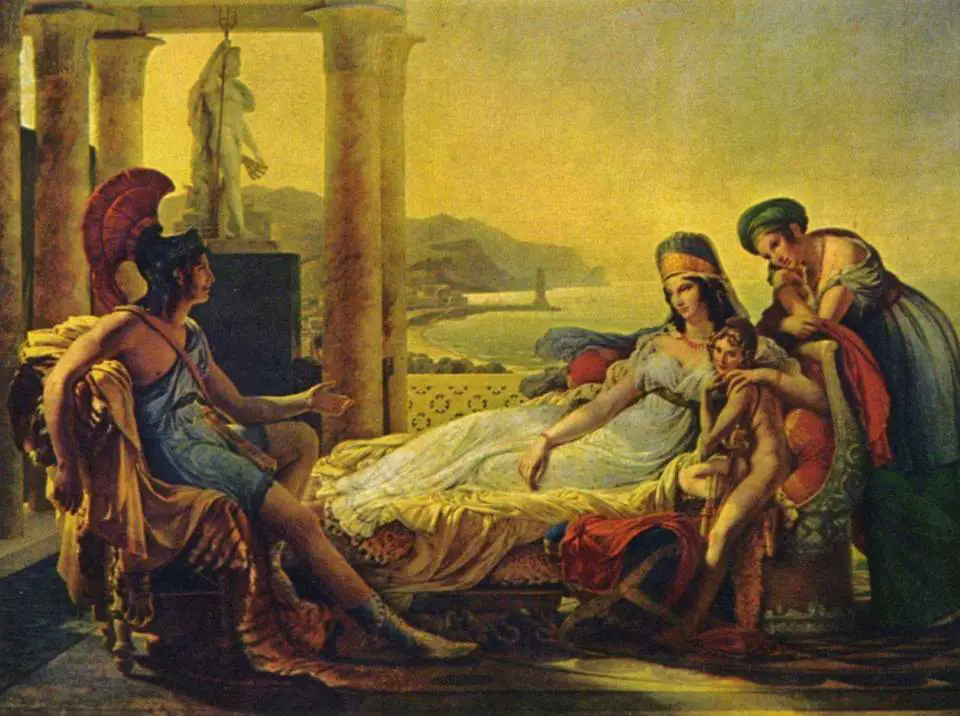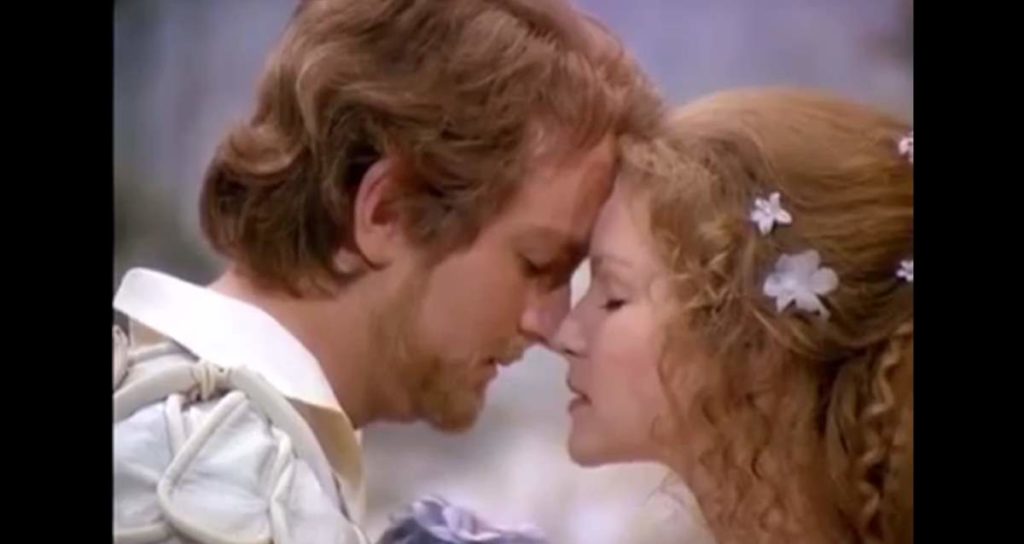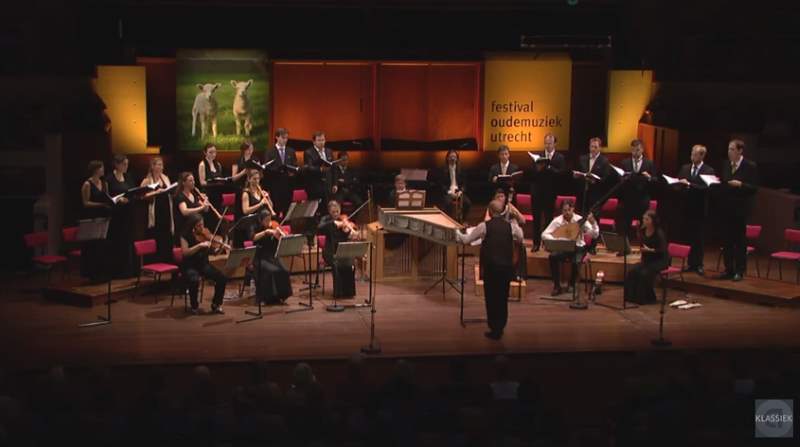Conducted by Christina Pluhar, L’Arpeggiata performs Henry Purcell’s opera in a prologue and three acts, “Dido and Aeneas (Z. 626)”. With a libretto by the Irish poet, hymnist, and lyricist Nahum Tate (1652 – 30 July 1715), the opera recounts the love of Dido, Queen of Carthage, for the Trojan hero Aeneas, and her despair when he abandons her.
Recorded on 5 September 2015 in TivoliVredenburg Utrecht during Festival Oude Muziek Utrecht, the annual music festival that showcases and celebrates early European art music. Published by the AVROTROS Klassiek.
Soloists:
- Mariana Flores: soprano
- Céline Scheen: soprano
- Marc Mauillon: baritone
Voices:
- Andrea Haines: soprano
- Emily Dickens: soprano
- Barnaby Smith: countertenor
- Christ Wardle: countertenor
- Oliver Vincent: tenor
- Samuel Dressel: tenor
- Paul Smith: baritone
- Dingle Yandell: bass
Text
Shake the clouds off your brow
Banish sorrow, banish care
Ah! Belinda, I am pressed with torment
Grief increases by concealing
When monarchs unite how happy their state
Whence could so much virtue spring?
Fear no danger to ensue
See, your royal guest appears
Cupid only throws the dart
If not for mine, for empire’s sake
To the hills and the vales
The triumphing dance
—
Wayward sisters, you that fright
Harm’s our delight
The queen of Carthage, whom we hate
Ruin’d ere the set of sun?
But ere we this perform
In our deep vaulted cell
Echo dance of furies
Thanks to these lonesome vales
Oft she visits this lone mountain
Behold, upon my bending spear
Haste, haste to a town
Stay, Prince, and hear great Jove’s command
—
Come away fellow sailors
The sailors dance
See the flags and streamers curling
Our next motion
The witches’ dance
Your counsel all is urged in vain
Great minds against themselves conspire
Thy hand Belinda; darkness shades me
When I am laid on earth
With drooping wings
Dido and Aeneas
A monumental work in Baroque opera, Dido and Aeneas is remembered as one of Henry Purcell’s (10 September 1659 – 21 November 1695) foremost theatrical works. It was also Purcell’s first opera, as well as his only all-sung dramatic work. One of the earliest English operas, it owes much to John Blow’s Venus and Adonis, both in structure and in overall effect.

According to ancient Greek and Roman sources, Dido was the founder and first Queen of Carthage (in modern-day Tunisia). She is primarily known from the account given by the Roman poet Virgil in his Aeneid. In some sources, she is also known as Elissa.
In Greco-Roman mythology, Aeneas (Greek: Αἰνείας, Aineías, possibly derived from Greek αἰνή meaning “praised”) was a Trojan hero, the son of the prince Anchises and the goddess Venus (Aphrodite). His father was the second cousin of King Priam of Troy, making Aeneas Priam’s second cousin, once removed.
He is a character in Greek mythology and is mentioned in Homer’s Iliad. Aeneas receives full treatment in Roman mythology, most extensively in Virgil’s Aeneid where he is an ancestor of Romulus and Remus. He became the first true hero of Rome.

Related: Monteverdi – L’Orfeo (Harnoncourt)
Dido and Aeneas’s synopsis
Act 1
Dido’s court
The opera opens with Dido in her court with her attendants. Belinda is trying to cheer up Dido, but Dido is full of sorrow, saying ‘Peace and I are strangers grown’. Belinda believes the source of this grief to be the Trojan Aeneas, and suggests that Carthage’s troubles could be resolved by a marriage between the two.
Dido and Belinda talk for a time: Dido fears that her love will make her a weak monarch, but Belinda and the Second Woman reassure her that “The hero loves as well.” Aeneas enters the court and is at first received coldly by Dido, but she eventually accepts his proposal of marriage.
Act 2
Scene 1: The cave of the Sorceress
The Sorceress/Sorcerer is plotting the destruction of Carthage and its queen and summons companions to help with evil plans. The plan is to send her “trusted elf” disguised as Mercury, someone to whom Aeneas will surely listen, to tempt him to leave Dido and sail to Italy.
This would leave Dido heartbroken, and she would surely die. The chorus joins in with terrible laughter, and the Enchantresses decide to conjure up a storm to make Dido and her train leave the grove and return to the palace. When the spell is prepared, the witches vanish in a thunderclap.
Scene 2: A grove during the middle of a hunt
Dido and Aeneas are accompanied by their train. They stop at the grove to take in its beauty. A lot of action is going on, with attendants carrying goods from the hunt and a picnic possibly taking place, and Dido and Aeneas are together in the activity.
This is all stopped when Dido hears distant thunder, prompting Belinda to tell the servants to prepare for a return to shelter as soon as possible. As every other character leaves the stage, Aeneas is stopped by the Sorceress’s elf, who is disguised as Mercury.
This pretends Mercury brings the command of Jove that Aeneas is to wait no longer in beginning his task of creating a new Troy on Latin soil. Aeneas consents to the wishes of what he believes are the gods but is heartbroken that he will have to leave Dido. He then goes off-stage to prepare for his departure from Carthage.
Act 3
The harbor at Carthage
Preparations are being made for the departure of the Trojan fleet. The sailors sing a song, which is followed shortly by the Sorceress and her companions’ sudden appearance. The group is pleased with how well their plan has worked, and the Sorceress sings a solo describing her further plans for the destruction of Aeneas “on the ocean”. All the characters begin to clear the stage after a dance in three sections, and then disperse.
The palace
Dido and Belinda enter, shocked at Aeneas’ disappearance. Dido is distraught and Belinda comforts her. Suddenly Aeneas returns, but Dido is full of fear before Aeneas speaks, and his words only serve to confirm her suspicions. She derides his reasons for leaving, and even when Aeneas says he will defy the gods and not leave Carthage, Dido rejects him for having once thought of leaving her.
After Dido forces Aeneas to leave, she states that “Death must come when he is gone.” The opera and Dido’s life both slowly come to a conclusion, as the Queen of Carthage sings her last aria, “When I am laid in Earth”, also known as “Dido’s Lament.” The chorus and orchestra then conclude the opera once Dido is dead by ordering the “cupids to scatter roses on her tomb, soft and gentle as her heart. Keep here your watch, and never, never part.”
Sources
- Dido and Aeneas on Wikipedia
- Nahum Tate on Wikipedia
- Dido (Queen of Carthage) on Wikipedia
- Aeneas on Wikipedia


Where can I then buy this music? It’s gone from the earth. Not to be found at Arte either.
Hi, Kees
Thanks for the comment. Unfortunately, I also couldn’t found. I’ll keep searching. I embedded another video in the post.
Does anybody know the names of the performers who sang the roles of the Sorceress and other two witches in this production? They don’t seem to be credited anywhere….
The sorceress is Nora Fischer I believe.